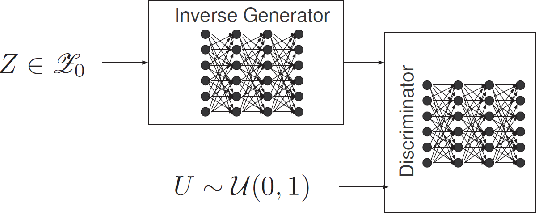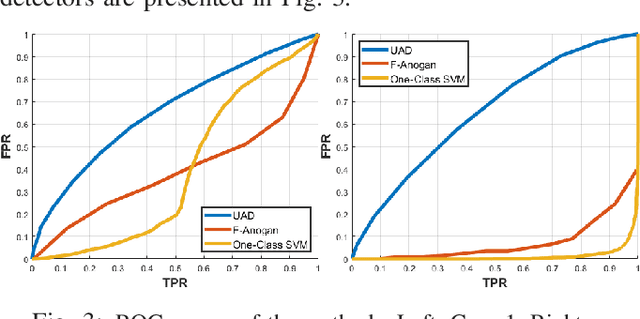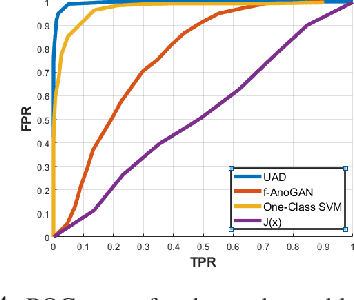Kursat Rasim Mestav
Bad-Data Sequence Detection for Power System State Estimation via ICA-GAN
Dec 09, 2020



Abstract:A deep learning approach to the detection of bad-data sequences in power systems is proposed. The bad-data model is nonparametric that includes arbitrary natural and adversarial data anomalies. No historical samples of data anomaly are assumed. The probability distribution of data in anomaly-free system operations is also non-parametric, unknown, but with historical training samples. A uniformity test is proposed based on a generative adversarial network (GAN) that extracts independent components of the measurement sequence via independent component analysis (ICA). Referred to as ICA-GAN, the developed approach to bad-data sequence detection can be applied at the individual sensor level or jointly at the system level. Numerical results demonstrate significant improvement over the state-of-the-art solutions for a variety of bad-data cases using PMU measurements from the EPFL smart grid testbed and that from the synthetic Northern Texas grid.
Universal Data Anomaly Detection via Inverse Generative Adversary Network
Jan 23, 2020



Abstract:The problem of detecting data anomaly is considered. Under the null hypothesis that models anomaly-free data, measurements are assumed to be from an unknown distribution with some authenticated historical samples. Under the composite alternative hypothesis, measurements are from an unknown distribution positive distance away from the distribution under the null hypothesis. No training data are available for the distribution of anomaly data. A semi-supervised deep learning technique based on an inverse generative adversary network is proposed.
Bayesian State Estimation for Unobservable Distribution Systems via Deep Learning
Nov 13, 2018



Abstract:The problem of state estimation for unobservable distribution systems is considered. A Bayesian approach is proposed that combines Bayesian inference with deep neural networks to achieve the minimum mean squared error estimation of network states for real-time applications. The proposed technique consists of distribution learning for stochastic power injection, a Monte Carlo technique for the training of a deep neural network for state estimation, and a Bayesian bad data detection and cleansing algorithm. Structural characteristics of the deep neural networks are investigated. Simulations illustrate the accuracy of Bayesian state estimation for unobservable systems and demonstrate the benefit of employing a deep neural network. Numerical results show the robustness of Bayesian state estimation against modeling and estimation errors of power injection distributions and the presence of bad data. Comparing with pseudo-measurement techniques, direct Bayesian state estimation with deep neural networks outperforms existing benchmarks.
 Add to Chrome
Add to Chrome Add to Firefox
Add to Firefox Add to Edge
Add to Edge